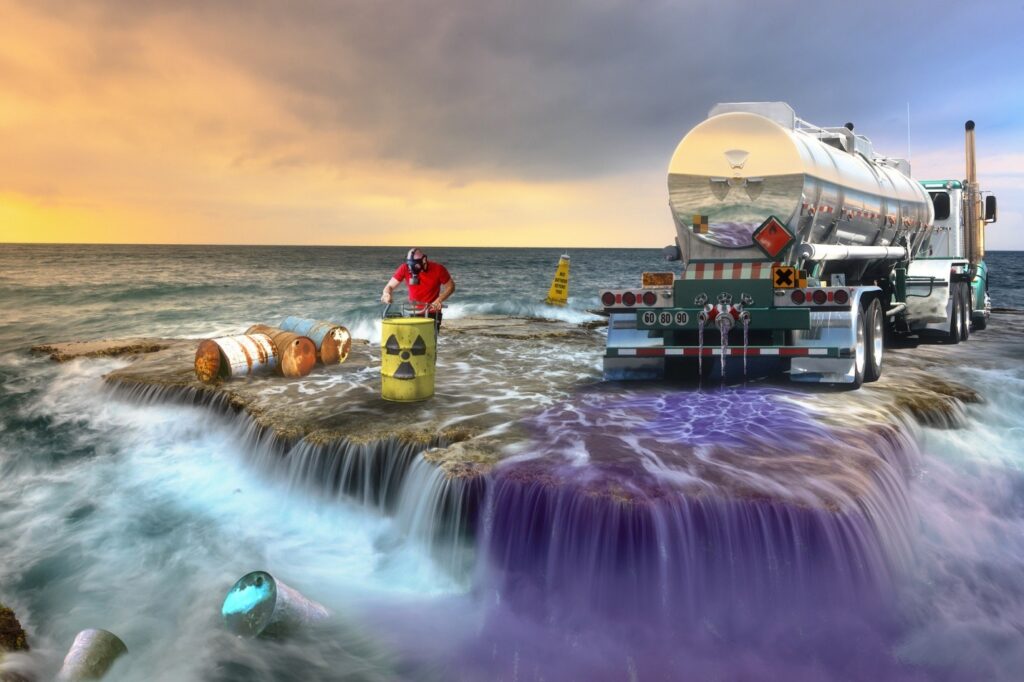The Ultimate Guide To Reclaim Waste
The Ultimate Guide To Reclaim Waste
Blog Article
The Best Guide To Reclaim Waste
Table of ContentsThe Basic Principles Of Reclaim Waste The Best Guide To Reclaim WasteThe 30-Second Trick For Reclaim WasteA Biased View of Reclaim WasteNot known Factual Statements About Reclaim Waste
Explore the kinds, events, and types of liquid waste. Domestic sewer waste describes the waste and products from a domestic septic tank. This sort of waste is produced by humans in residences, institutions, and various other structures. This only consists of sewage-disposal tanks that have a drainpipe field. The appropriate management and disposal of domestic sewer waste call for liquid waste to be transferred to a sewage treatment plant where the correct techniques and equipment are related to detoxify and take care of waste.
Business waste typically consists of potential threats, such as flammable materials or a mixture of fluid and solid waste items, and calls for an advanced and detailed disposal procedure. The disposal of industrial waste usually includes the filtration of waste prior to transportation to make sure safe and correct disposal. Industrial waste is developed from results and overflow of commercial processes and manufacturing.
This sort of waste can not utilize the same sewage administration transportation or processes as septic or industrial liquids. The hazardous waste management procedure requires the examination and screening of liquid waste prior to it goes through the disposal process (liquid waste removal melbourne). Drainage waste is the fluid waste that originates from drainage and excess stormwater in highly inhabited locations or cities
Drainage waste can create contamination and flooding otherwise dealt with appropriately. Discover more concerning drain cleansing and waste management. Making certain correct waste management can avoid catastrophes and lower environmental damage. Both people in residential settings and experts in business or manufacturing industries can profit from comprehending the procedures and laws of liquid waste management.
Some Known Facts About Reclaim Waste.
Contact PROS Solutions today to find out about our waste administration and disposal services and the correct methods to take care of the liquid waste you produce.
(https://reclaimwaste1.edublogs.org/2024/11/12/efficient-liquid-waste-removal-and-disposal-your-complete-guide-to-sustainable-waste-management/)
This so-called 'wastewater' is not just a crucial source however, after therapy, will be released to our land, rivers or the ocean. Made use of water from bathrooms, showers, bathrooms, kitchen sinks, washings and industrial procedures is known as wastewater.

water utilized to cool equipment or clean plant and equipment). Stormwater, a type of wastewater, is drainage that moves from farming and city locations such as roofing systems, parks, gardens, roads, paths and rain gutters into stormwater drains pipes, after rainfall. Stormwater streams unattended straight to neighborhood creeks or rivers, eventually reaching the ocean.
Not known Facts About Reclaim Waste
In Queensland, the majority of wastewater is treated at sewage treatment plants. Wastewater is carried from residential or commercial websites with a system of drains and pump terminals, referred to as sewerage reticulation, to a sewer therapy plant. City governments build, preserve and operate most sewer therapy plants. Operators are certified under the Environmental Management Act 1994 to discharge treated wastewater at an acceptable environmental requirement right into waterways.
The Division of Natural Resources advises city governments about managing, operating and keeping sewage systems and treatment plants. In unsewered areas, neighborhood federal governments might need owners to mount specific or house sewage treatment systems to treat domestic wastewater from toilets, kitchen areas, restrooms and washings. The Department of Natural Resources authorises making use of house systems when they are shown to be efficient.
Many stormwater receives no treatment. In some brand-new neighborhoods, therapy of some stormwater to get rid of clutter, sand and gravel has actually started using gross toxin traps. Wastewater therapy takes place in four phases: Gets rid of strong matter. Bigger solids, such as plastics and various other objects mistakenly released to sewers, are removed when wastewater is travelled through displays.
Wastewater then streams into huge storage tanks where solids resolve and are eliminated as sludge. Grease and scum are skimmed from the surface area. Makes use of little living organisms referred to as micro-organisms to break down and get rid of remaining dissolved wastes and great particles. Micro-organisms and wastes are incorporated in the sludge. Eliminates nitrogen and phosphorus nutrients that can cause algal flowers in our waterways and endanger marine life.
The Reclaim Waste Statements
Nutrient removal is not readily available at all sewage therapy plants because it needs expensive specialized equipment. Clear fluid effluent generated after treatment might still contain disease-causing micro-organisms - liquid waste removal.

This normally indicates wastewater needs to be treated or contaminants gotten rid of prior to it can be discharged to waterways. The majority of wastewater moves right into the sewerage system. Under the Act, city governments provide approvals and permits for eco appropriate activities (Periods) entailing wastewater launches that might have a regional impact. The department carries out authorizations and licences to Ages involving wastewater launches that might have a local or statewide effect.
The Main Principles Of Reclaim Waste
Monitoring gives factual details concerning water quality and can confirm that licence conditions are being satisfied. The info acquired via surveillance gives the basis for making water quality decisions.
Report this page